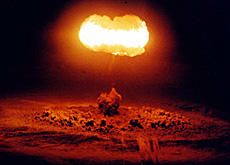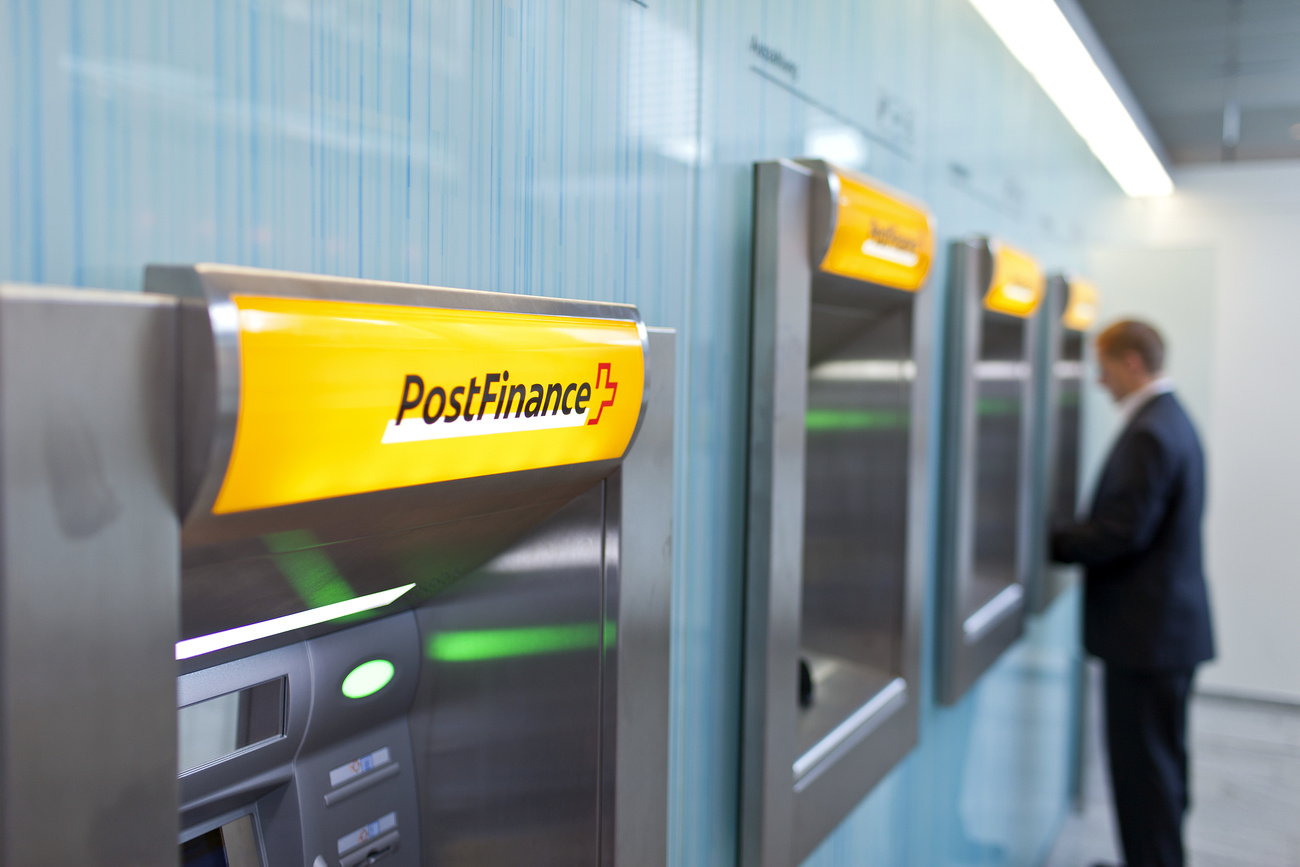Swiss chalet keeps an eye on the arms race

An unpretentious mountain hut in the Swiss mountain resort of Davos is the unlikely setting for a special nuclear monitoring station.
Known as Davox, the station was opened in October to assist the international community in detecting secret atomic tests, as well as natural disasters.
Davox is one of 321 monitoring stations around the world, whose job it is to detect vibrations, changes in pressure and radioactive particles – all potential signs of illicit nuclear experiments.
It was constructed in line with the Comprehensive Nuclear-Test-Ban Treaty (CTBT), which Switzerland ratified in October 1999, and which is aimed at banning all tests of nuclear weapons and nuclear explosions.
The Federal Institute of Technology in Zurich built the station – funded by the foreign ministry – which looks like a typical Swiss chalet but is actually a concrete hut housing a seismograph.
The institute’s Urs Kradolfer says the remoteness of the station, situated in the Dischmatal valley, is intentional.
“It took us three years to find the right location for Davox. It’s an ideal area, quiet, sparsely populated, far away from the sea and where the continent’s natural vibrations are extremely small,” Kradolfer told swissinfo.
“We can record every seismic event higher than five degrees in magnitude, wherever they are in the world,” he added.
Alert
From a technical point of view, Davox is similar to the 30 other seismic stations in Switzerland. But there is one difference: it is directly linked up to the CTBT headquarters in Vienna.
The CTBT centre analyses all the data it receives. If a violation of the treaty is detected, it immediately alerts the United Nations Security Council.
But scientists have to be able to distinguish between seismic activity caused by an earthquake or volcano eruption, and seismic activity triggered by a nuclear test.
“A normal earthquake maintains a more or less stable degree of magnitude for about ten seconds. Furthermore, it’s made up of successive waves, “ explained Kradolfer.
“However, an atomic explosion emits a lot of energy at the beginning, in one go. Then the tremors reduce progressively,” he said.
Nuclear era
There have been no nuclear tests recorded globally since 1998, but Jean-Daniel Praz from the Swiss foreign ministry says this does not mean that the station is redundant.
“First of all, there are still many countries, such as the United States and China, who haven’t ratified the accord,” Praz told swissinfo.
“Others, such as North Korea, India and Pakistan, have not even signed it,” he added.
Some countries, such as the United States, continue to carry out computer simulated and laboratory tests.
But Praz warns that these virtual experiments may soon be replaced by real ones, as nations strive to gain a nuclear advantage.
“If the trend continues and a new generation of nuclear arms should be developed, then sooner or later, someone will want to test them out,” said Praz.
“It remains our view, however, that the only way to stop nuclear weapons is to keep up international pressure by getting countries to sign and ratify treaties such as the CTBT,” said Praz.
“Otherwise, it could be a free for all.”
swissinfo
The Comprehensive Nuclear-Test-Ban Treaty (CTBT) was opened for signature in September 1996.
Switzerland signed the treaty in 1996 and ratified it in 1999.
So far 32 of 44 countries have ratified the treaty.
Davox is one of 120 seismic stations to be built worldwide.

In compliance with the JTI standards
More: SWI swissinfo.ch certified by the Journalism Trust Initiative








You can find an overview of ongoing debates with our journalists here . Please join us!
If you want to start a conversation about a topic raised in this article or want to report factual errors, email us at english@swissinfo.ch.